
Solar Solutions
Our solar solutions provide cost-effective and sustainable energy solutions for both residential and commercial clients. Experience the benefits of clean energy, save electricity bills and reduce your carbon footprint with us.

Geo Solar is a professional Solar Energy Installation Company serving our clients across Australia. We are experts in building, and maintaining solar Residential & Commercial projects for our customers.
We at GeoSolar are not just experts in solar services; we also offer a wide range of electrical services to keep your home or business running smoothly. Our team of licensed electricians can handle everything from installations and repairs to upgrades and maintenance, all while ensuring safety and energy efficiency. Count on us to deliver exceptional service and results that will power your life for years to come.

Our solar solutions provide cost-effective and sustainable energy solutions for both residential and commercial clients. Experience the benefits of clean energy, save electricity bills and reduce your carbon footprint with us.
Our solar solutions provide cost-effective and sustainable energy solutions for both residential and commercial clients. Experience the benefits of clean energy, save electricity bills and reduce your carbon footprint with us.


Our solar panel cleaning service helps optimize your system’s energy output by removing dirt and debris that accumulates over time. Extend the life of your solar panels and maximize your savings with regular cleaning.
We understand that every home and business is unique, which is why we offer customized solar solutions to meet your specific needs. Don’t settle for a one-size-fits-all approach to solar. Our experts will create a customized solution that meets your specific energy needs and goals.


Regular solar panel maintenance ensures optimal system performance and can identify potential issues before they become major problems. Trust our experts to keep your solar panels operating efficiently for years to come.
Our electrical appliance installation services provide safe and efficient installation for all types of appliances. From large appliances to small, trust our licensed electricians to install and maintain your electrical appliances.


Our PowerPoint installation service provides reliable and professional installation of power points in your home or business. Trust our licensed electricians to ensure your safety and meet all necessary compliance requirements.
Keep your electrical system running safely and efficiently with our professional switchboard upgrade electricians. From safety to functionality, our team will ensure your switchboard upgrade meets all necessary requirements.

Installing solar panels on your roof is a great way to reduce your energy bills and your carbon footprint. If you’re considering this option, here’s what you need to know:
It’s important to note that installing solar panels on your roof can be a complex process, so it’s always best to work with a qualified professional. At [company name], we have the experience and expertise to help you navigate the process from start to finish, ensuring you get the best possible solar solution for your needs.
The cost of a solar energy system in Australia varies depending on several factors, including the size of the system, the type of panels used, and the location of the installation. On average, the cost of a residential solar energy system in Australia ranges from $3,500 to $10,000, although prices can be higher or lower depending on the specific requirements of the project.
There are several factors that can impact the cost of a solar energy system, including:
It’s important to keep in mind that the upfront cost of a solar energy system can be offset by long-term savings on energy bills, as well as by government incentives and rebates. Many customers find that their solar energy system pays for itself in a few years, and that they continue to save money on energy costs for many years after that.
The amount of energy that a solar energy system can produce depends on several factors, including the size of the system, the location of the installation, and the weather conditions in the area.
On average, a 6 kilowatt (kW) solar energy system, which is a common size for a residential installation in Australia, can produce around 20 kilowatt-hours (kWh) of electricity per day in ideal conditions. However, this amount can vary depending on the location and weather conditions, with production being lower on cloudy or rainy days and higher on sunny days.
It’s important to note that the actual energy production of a solar energy system can be affected by several factors, including the angle and orientation of the panels, shading from trees or other buildings, and the age and efficiency of the panels.
GeoSolar can help you determine the expected energy production of a solar energy system based on the specific conditions at your location, and can also help you determine the size of the system that you will need to meet your energy needs.
Yes, there are few government incentives available for solar energy systems in Australia, including:
Small-scale Technology Certificates (STCs): STCs are a form of renewable energy credit that are created based on the expected output of a solar energy system. Homeowners can sell their STCs to recoup a portion of the cost of their solar energy system. The number of STCs that can be created for a solar energy system depends on the size of the system, the location of the installation, and the date of installation.
Feed-in Tariffs (FiTs): Many Australian states and territories offer FiTs, which are payments made to homeowners for the excess electricity that is generated by their solar energy system and sent back to the electrical grid. The amount of the FiT varies depending on the state or territory, and may also depend on the time of day and the amount of electricity that is generated.’
It’s important to note that the availability and amount of these incentives can vary depending on the state or territory, and may change over time as government policies are updated. GeoSolar can help you determine the specific incentives that are available in your area, and can also help you navigate the process of applying for these incentives.
The payback period for a solar energy system, which is the amount of time it takes for the savings from reduced energy bills to cover the initial cost of the system, can vary depending on several factors, including the size of the system, the cost of electricity in your area, and the amount of energy that the system produces
On average, the payback period for a residential solar energy system in Australia is between 3 and 5 years, although it can be shorter or longer depending on the specific conditions at your location. After the payback period, you can continue to enjoy reduced energy bills for many years.
It’s important to keep in mind that the payback period is just one of many factors to consider when deciding whether to install a solar energy system. Other factors, such as the environmental benefits of using renewable energy, the availability of government incentives, and the long-term energy savings, should also be taken into account.
GeoSolar can help you determine the payback period for a solar energy system based on the specific conditions at your location, and can also help you assess the long-term benefits of using solar energy.
In Australia, the installation of a solar energy system is subject to various regulations, including building codes, electrical safety standards, and local council regulations. To ensure compliance with these regulations, you will typically need to obtain the following approvals and permits before installing a solar energy system:
It’s important to note that these approvals and permits can take time to obtain, so it is recommended to start the process as soon as possible to avoid potential delays in the installation of your solar energy system.
GeoSolar can help you navigate the approvals & permitting process and ensure that your solar energy system is installed in compliance as per Australian regulations and CEC standards.
There are several ways to monitor the performance of your solar energy system:
Solar Inverter: Most solar energy systems come with a solar inverter that provides information on the performance of the system. The inverter can display data on the amount of energy being produced by the solar panels, as well as information on the efficiency of the system and any issues that may be affecting its performance.
It is important to regularly monitor the performance of your solar energy system to ensure that it is operating efficiently and effectively, and to address any issues that may arise. If you are having trouble monitoring your solar energy system or have questions about its performance, GeoSolar is always there for any support and guidance needed.
If you see a problem with your solar energy system, there are several steps you can take:
It is important to address any issues to us as soon as possible to ensure that it continues to operate efficiently and effectively. If you are having trouble diagnosing or repairing a problem with your system, do contact GeoSolar for support and guidance.
Yes, you can add additional solar panels to your existing system in the future if you need to increase your energy production or if you want to expand your system. Adding additional panels is a relatively straightforward process, but there are a few things to consider:
Before adding additional panels to your existing system, it is a good idea to contact GeoSolar to assess the feasibility and to ensure that the additional panels to be installed will be in compliance with all relevant regulations and standards.
Solar refers to energy that is generated from sunlight. It is a type of renewable energy that is harnessed through the use of solar panels, which convert sunlight into electricity. Solar energy can be used to power homes, businesses, and other types of buildings, as well as for a variety of other applications, such as heating water, drying clothes, and powering outdoor lighting. Because solar energy is renewable, abundant, and clean, it is increasingly being used as a way to reduce dependence on fossil fuels and mitigate the negative impacts of climate change.
Solar panels do not typically work at night because they rely on sunlight to generate electricity. During the day, the solar panels convert sunlight into DC (direct current) electricity, which can be used immediately or stored in a battery system for later use. At night or on cloudy days, the panels do not receive direct sunlight, so they are not able to generate electricity. However, it is possible to install battery systems that can store excess energy generated during the day for use at night, allowing solar panel systems to provide electricity around the clock.
STC stands for Small-scale Technology Certificates, which are a type of currency in the Australian solar industry. They are created under the Small-scale Renewable Energy Scheme (SRES) and are awarded to households and businesses that install eligible small-scale renewable energy systems, such as solar panel systems. One STC represents one megawatt hour of electricity generation capacity that is eligible for the SRES. The number of STCs that can be claimed for a solar panel system depends on its size, location, and the amount of electricity it is expected to generate over its lifetime. STCs can be sold to registered agents or traded on the STC market for cash or other benefits.
There are many trusted inverter and solar panel brands used by Australians, and it can depend on a number of factors such as budget, performance, and features. However, here are some of the most popular and well-respected brands in Australia.
Solar Panel Brands:
Inverter Brands:
These brands are known for their high quality, reliability, and performance. Please note that the most trusted brands may vary depending on the individual needs and preferences of each homeowner, as well as the specific installation location and system size.
CEC stands for the Clean Energy Council. It is the peak industry body representing Australia’s clean energy sector. The Clean Energy Council works to promote the development and deployment of clean energy technologies, including solar, wind, and energy storage, and advocates for policies and regulations that support the growth of the sector. The CEC also administers and oversees the accreditation of installers and designers of solar and other renewable energy systems, ensuring that they meet the required standards for safety and quality. In short, the CEC plays an important role in driving the transition to a clean energy future in Australia.

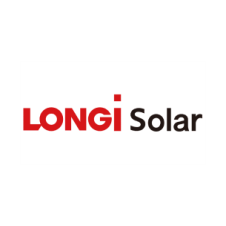

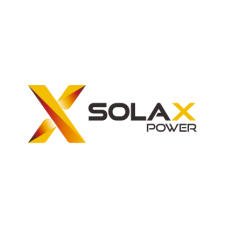

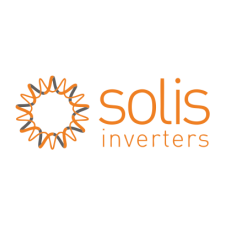

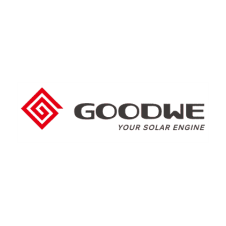
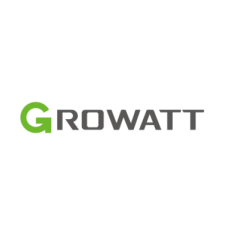




2024 Geo Solar. All Rights Reserved | ABN : 33664340881
Powered By Squareroot Communcations
2024 Geo Solar. All Rights Reserved | ABN : 33664340881
WhatsApp us